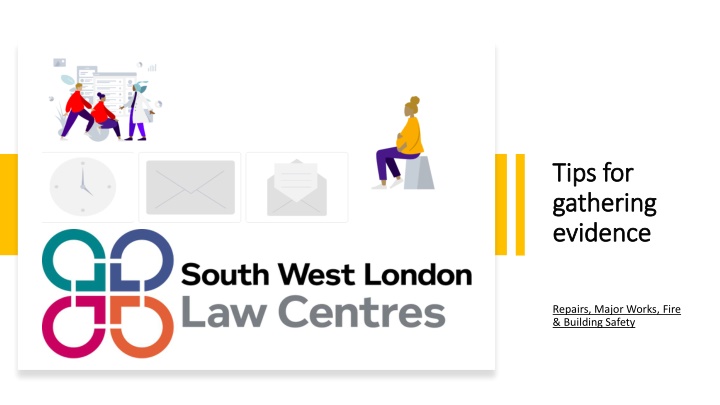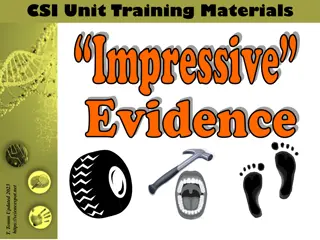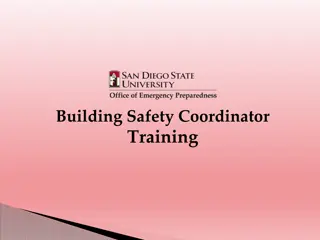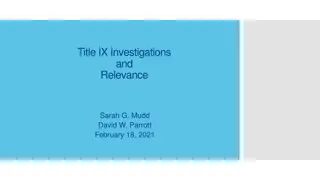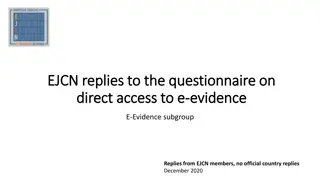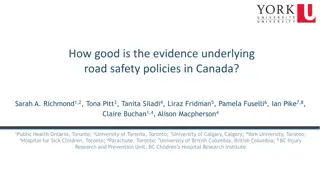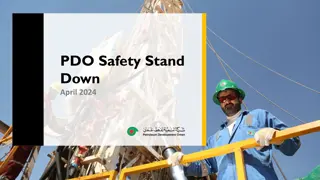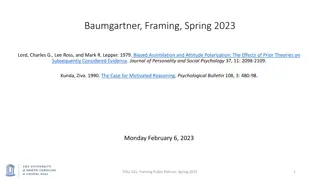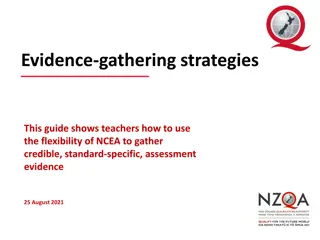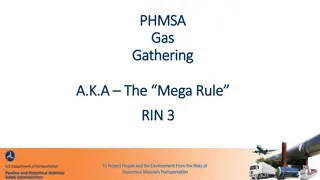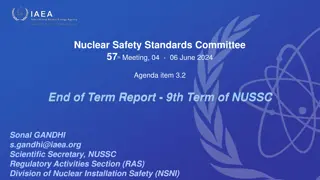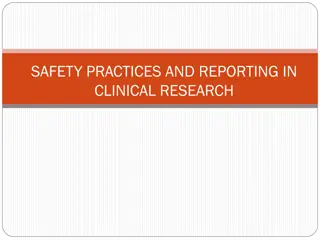Essential Tips for Gathering Evidence in Building Safety Matters
Learn key strategies for collecting evidence related to repairs, major works, fire incidents, and building safety. Explore the EIRC method for evidence collection, understand the importance of proof in documenting issues like heating system breakdowns, and discover response times for various repair types. Gain insights into how to effectively record the level of disrepair using photos, videos, public meetings, and statements from household members.
Download Presentation

Please find below an Image/Link to download the presentation.
The content on the website is provided AS IS for your information and personal use only. It may not be sold, licensed, or shared on other websites without obtaining consent from the author.If you encounter any issues during the download, it is possible that the publisher has removed the file from their server.
You are allowed to download the files provided on this website for personal or commercial use, subject to the condition that they are used lawfully. All files are the property of their respective owners.
The content on the website is provided AS IS for your information and personal use only. It may not be sold, licensed, or shared on other websites without obtaining consent from the author.
E N D
Presentation Transcript
Tips for Tips for gathering gathering evidence evidence Repairs, Major Works, Fire & Building Safety
EIRC EIRC E Evidence I Identify R Report C Connect
Disrepair V Repairs Disrepair V Repairs
The importance of proof The importance of proof Dani lives in a ground floor flat. The estate Dani lives in has a communal heating system. The heating system breaks A LOT Dani wrote down every time the heating system broke down, how long for, how it impacted her, who she reported it to and what was said. She bought her-self a diary and kept all this information Dan was given a plug-in heater by her local authority landlord which caused her electric bills to rocket. Every time she topped up her electric, she kept her receipts and was able to demonstrate the increase in electric bills during communal heating breakdowns
Repair type Response time(working days) Total loss of electric power 1 Partial loss of electric power 3 Unsafe power or lighting socket or electrical fitting 1 Total loss of water supply 1 Partial loss of water supply 3 Total or partial loss of gas supply 1 Blocked flue to open fire or boiler 1 Heating or hot water not working between 31 October and 1 May 1 Heating or hot water not working between 1 May and 31 October 3 not Blocked/leaking foul drain, soil stack or toilet 1 has fewer than 100 properties is not legally responsible for the repair decides the repair would cost more than 250 Toilet not flushing (if there is only one toilet in the property) 1 Blocked sink, bath or basin 3 Tap cannot be turned 3 Leak from a water pipe, tank or cistern 1 Leaking roof 7 Insecure external window, door or lock 1 Loose or detached banister or hand rail 3 Rotten timber flooring or stair tread 3 Door entry phone not working 7 Mechanical extractor fan not working 7
How to record the level of disrepair... How to record the level of disrepair... Take photos what makes a good photo. Showing where the issue is in relation to other things ie: is it by a bed or a cot? Take videos Click to add text Organise a public meeting where you live to hear if it is affecting neighbours Take statements from house hold members
Evidence for a legal case: Evidence for a legal case: *Ked lives in the same block as Dani he is a Leaseholder and is disputing the bills he was receiving for a communal heating system that didn't work and wasn't managed properly. Ked took the local authority freeholder to court. He had charges for some of the work refunded and some of the costs for heating and hot water refunded.
When you are putting together your legal case When you are putting together your legal case Sometimes things aren't resolved in Stage 1 or Stage 2 of your landlords internal complaint process. You should continue onto the Housing Ombudsman as this should not affect your legal case. Record everything. Every conversation you have regarding your disrepair. Who you spoke to, where they were from, what time and what date, what was said. Record the disrepair. What happened, what time and date, how it impacted you ie: did not having hot water mean that you could not have a shower and you have a health condition where you need to have a shower.
Sometimes it will be important to get legal advice. You can get legal advice from a Citizens Advice Bureau. Your local Law Centre may be able to help. Check www.lawcentres.org.uk You might be entitled to legal aid legal aid is payment from public funds allowed, in cases of need, to help pay for legal advice or proceedings. Check if you are eligible here: https://www.gov.uk/check-legal-aid If you have a court hearing for an eviction you may be able to make a disrepair counter claim for the disrepair There are also No Win, No Fee solicitors some of these take a high % of win. You can visit www.advicelocal.uk
Gather medical evidence. If you or anyone in your household has a health condition, get evidence. Has it got worse? Has it been made worse by your housing conditions? How has the disrepair affected your health you could keep a diary Have you tried to report the issues but weren't able. If you did not know how to report it, record that as that can also be useful to your Housing Ombudsman complaint Has anyone come to your property to fix the issue document what happened. Take pictures before and after. Has anything in your property been damaged as a result of the disrepair? Take pictures. Keep receipts of anything that was damaged or was fixed.
Other things that are useful for your case.. (a) a copy of the tenancy agreement including the tenancy conditions; (b) the tenancy file; (c) any documents relating to notice of poor housing conditions given, including copies of any notes of meetings and oral discussions; (d) any inspection reports or documents relating to works required to the property; and (e) any computerised records.
Numb er Tick as appropr iate What is the issue? Notice Given (how did was the landlord made aware of the issue) Inconvenience suffered (how has it affected you) Anything damaged? Any cost incurred? Ie: use of plug in heater Exterior of premises, roof, access, Entrance, hall, storage Living room (s) Bathroom Toilet Bedroom 1 Bedroom 2 Bedroom 3 Other?
Gathering evidence of your disrepair isn't just useful for taking legal action. It can bring change. You should escalate complaints and go through the Housing Ombudsman Law is one tool You can speak to journalists You can submit evidence to your MP You can submit your evidence to committees
https://www.advicenow.org.uk/articles/dealing-poor-housing- conditions-and-repair https://england.shelter.org.uk/housing_advice/repairs/legal_action_if _your_landlord_wont_do_repairs https://england.shelter.org.uk/professional_resources/legal/housing_ conditions/legal_remedies_for_disrepair/social_housing_tenant_right s_to_repair
